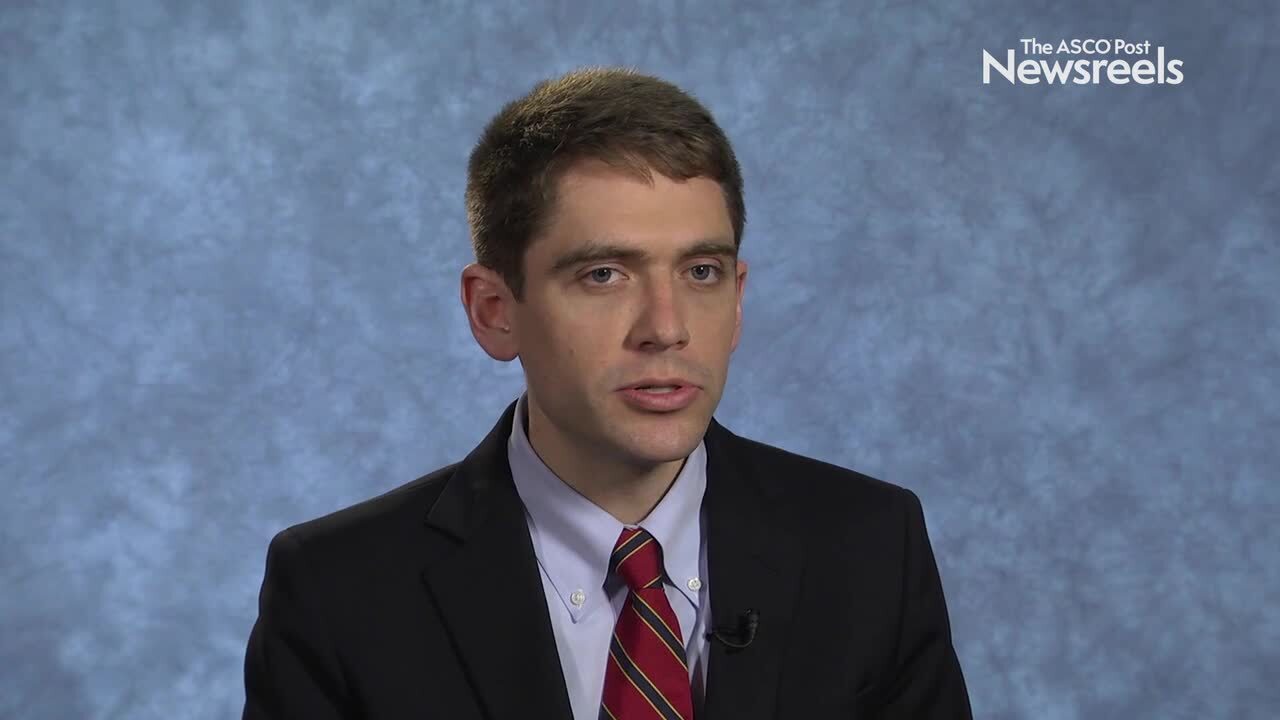Thomas Galloway, MD, on Oropharyngeal Cancer: Improving Outcomes and Reducing Toxicity
2018 ASTRO Annual Meeting
Thomas Galloway, MD, of Fox Chase Cancer Center, summarizes a session on head and neck cancer that included findings on reducing oral mucositis, improving quality of life with deintensified chemoradiotherapy, and the costs of dose de-escalation (Scientific Session 31).
Howard M. Sandler, MD, of Cedars-Sinai Medical Center, summarizes a session he moderated that included discussion of an ASTRO, ASCO, and AUA guideline; indications and dose fractionation; treatment volumes; and the use of IGRT and IMRT (Panel 03).
David Raben, MD, of the University of Colorado, discusses overall survival with durvalumab vs placebo after chemoradiotherapy in stage III non–small cell lung cancer (Abstract LBA10).
Vinai Gondi, MD, of Northwestern Medicine, discusses the early results of a phase III NRG Oncology trial that suggests a practice change in treating brain metastases: avoiding the hippocampus when delivering whole-brain radiotherapy (Abstract LBA9).
Michael Soike, MD, of Wake Forest University Medical Center, discusses results from a large multicenter study that suggests salvage stereotactic radiosurgery leads to improved overall survival compared with whole-brain radiotherapy for patients with progressive brain metastases (Presentation 296 in Scientific Symposium 40).
Alan Pollack, MD, of the University of Miami, discusses study findings on short-term androgen-deprivation therapy with or without pelvic lymph node treatment added to prostate bed–only salvage radiotherapy (Abstract LBA5).





